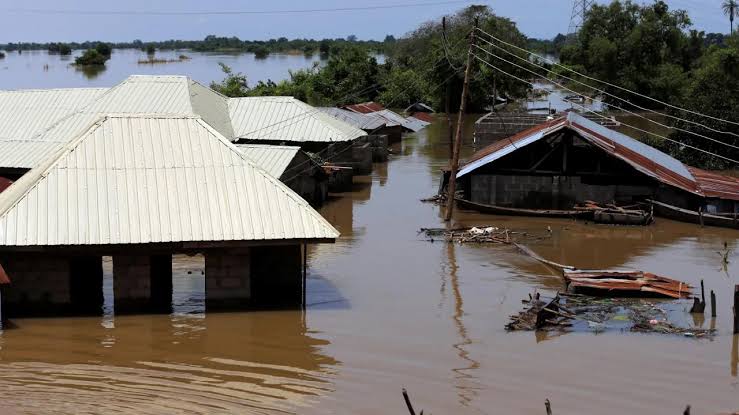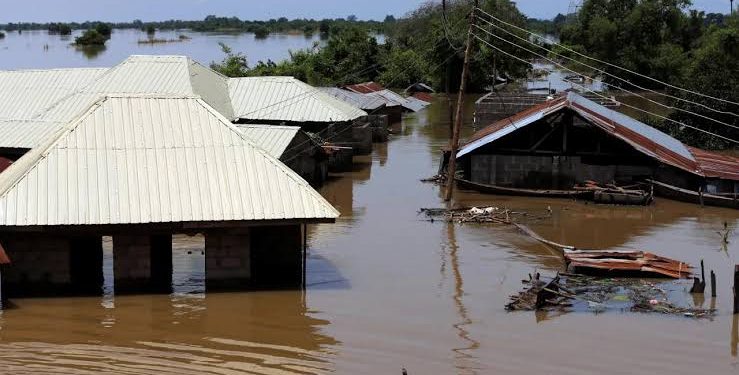Abuja, Nigeria – July 29, 2025 –
Nigeria is once again grappling with the devastating impact of heavy seasonal rainfall, with numerous states experiencing severe flooding that has damaged homes and displaced thousands of families. Kogi State, in particular, has borne the brunt of the recent deluge, highlighting the urgent need for enhanced disaster preparedness and response mechanisms across the nation.
Reports from various affected areas paint a grim picture of submerged communities, collapsed structures, and widespread destruction of livelihoods. In Kogi State, the rising water levels have inundated several local government areas, including Lokoja, Ibaji, Kogi, and Bassa.
Preliminary assessments by organizations like the International Organization for Migration (IOM) and the Nigerian Red Cross Society (NRCS) indicate that hundreds of households have been impacted, with a significant number of individuals displaced and seeking refuge in higher grounds or with relatives in other states.

Families have been forced to abandon their homes, often with little more than the clothes on their backs, as floodwaters rapidly engulfed their properties. The damage extends beyond residential buildings, with farmlands, a primary source of income for many, also submerged. Crops such as rice, yams, cassava, and groundnuts have been destroyed, raising concerns about food security in the coming months.
Also read: https://nationscuriosity.com/education-sector-in-crisis-addressing-out-of/
While flooding is an annual occurrence during Nigeria’s rainy season (April to October), the intensity and widespread nature of the current events are a cause for alarm. Experts attribute the escalating frequency and severity of these floods to a combination of factors, including climate change leading to increased precipitation, inadequate drainage systems, and in some cases, the overflowing or breaching of dams. Recent incidents in states like Borno, where the Alau Dam collapsed in September 2024, underscore the compounding risks faced by vulnerable communities.
The humanitarian implications are immense. Displaced families are in dire need of immediate assistance, including shelter, food supplies, clean water, sanitation facilities, and essential medications. The risk of waterborne diseases also increases significantly in such conditions.
The Nigerian government, through agencies like the National Emergency Management Agency (NEMA), has been actively working on improving flood prevention strategies and response mechanisms. There is a growing emphasis on shifting from reactive disaster management to proactive and anticipatory actions.
This includes simulation drills in high-risk states, improved early warning systems, and community engagement to build resilience. International partners like IOM are also on the ground, providing critical data, emergency shelter kits, and other non-food items to affected populations.
As the rainy season continues, authorities and humanitarian organizations are urging residents in flood-prone areas to remain vigilant and adhere to safety guidelines. The ongoing crisis serves as a stark reminder of the urgent need for long-term solutions, including robust infrastructure development, improved urban planning, and effective climate change adaptation strategies, to mitigate the devastating impact of future floods on Nigerian communities.


